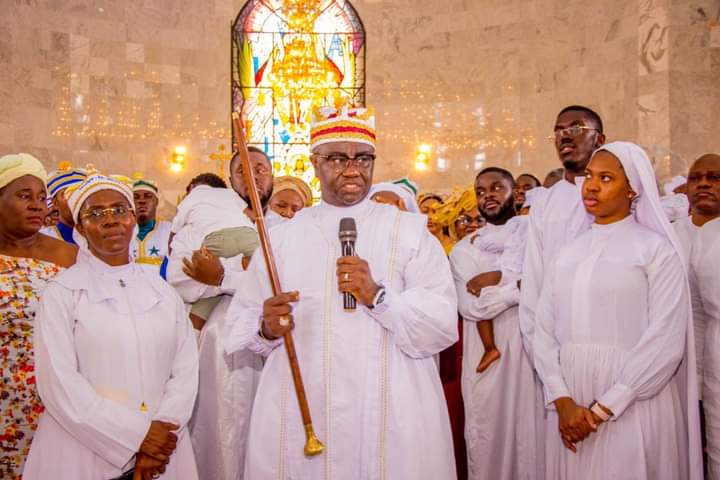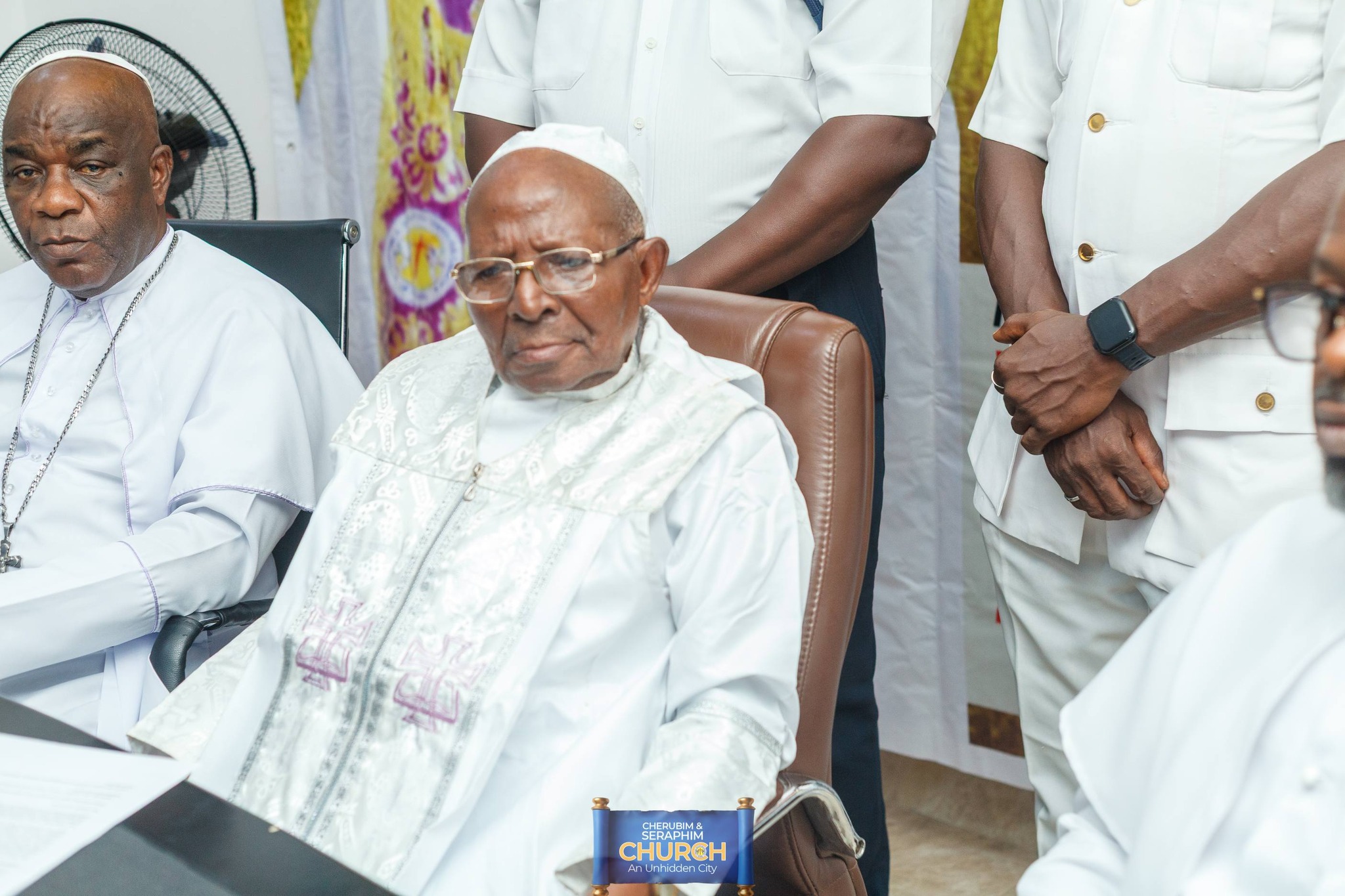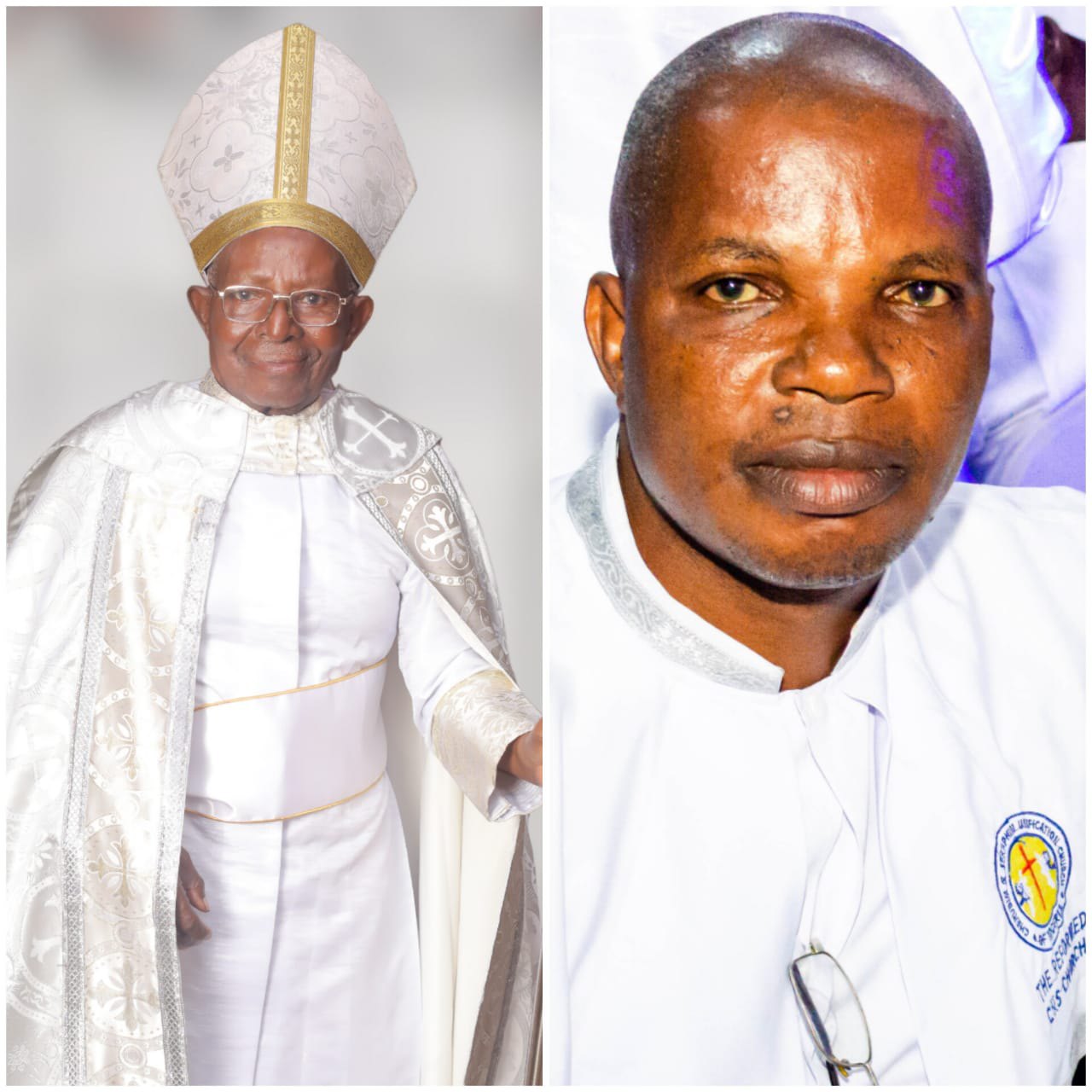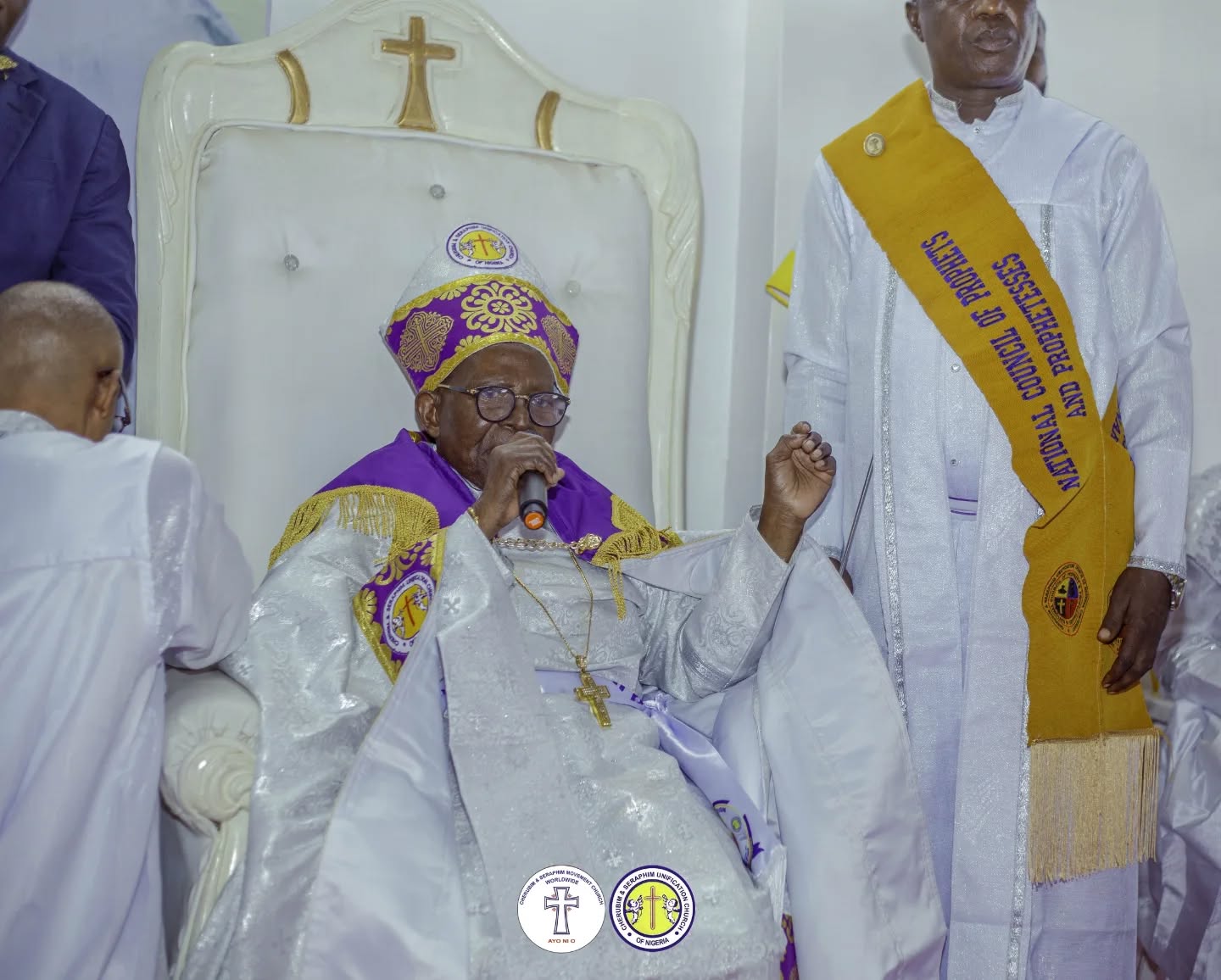Cherubim & Seraphim taught me to always speak the truth – Clem Agba, Minister of State for Budget and National Planning

Prince Clem Ikanade Agba was appointed on August 21, 2019, as Nigeria’s Minister of State for Budget and National Planning by His Excellency President Muhammadu Buhari. Having been admitted and inducted into the Advisory Board of the Eternal Sacred Order of the Cherubim and Seraphim (ESOCS) Church on December 4, 2013, he has played an important role in the highest decision-making body of the ESOCS Church. He shares with EMMANUEL ABODUNRIN his thoughts on the church, politics and a bit about his life
You once said there was a prophecy you would be appointed a minister of the Federal Republic of Nigeria, can you please elucidate on this?
I think it was September 2017 at our annual Audacity of Praise programme when Pastor Kasali was ministering. He stopped and said he normally wouldn’t want to say it but the spirit was telling him to say it. He said one of us would be elevated at the national level and it would take place within two to three years from that day. He said God stated further that whenever it happened, the son should remember the church and his people. So, when he said son, that meant a man and somehow I felt it was me and I claimed it. When I saw some clips (of the programme) later, my wife too claimed it for me. She also felt it was me. If you watch the clips, you would see her saying amen and amen. In about one year and 10 months, the prophecy was fulfilled. The Audacity of Praise was in September, my nomination was announced in July 2019 and I was inaugurated on August 31. We give glory to God. This is a spiritual church laid on prophecy, though most people misunderstand it and ascribe all sorts of things to us. The church is generally seen as one for poor people; a church that never does well; a church for uneducated people who always go to the beach to worship and such things. Those misconceptions are there and they are not true, but we thank God.
How have you managed to live with the misconceptions that you mentioned?
I was born and brought up in the church so I understand the church; I know what the church does and I know that those things they ascribe to the church are incorrect. I have never been ashamed to be a member of the church. From when I was young, I have always worn my garment from the house to church. I made it known to all my friends that I worship here and from time to time I invite them to the christening of my children. So, they come and they see how we worship and know it is not the voodoo they think we do or the kind of things they hear that we practice. The church has shaped my life. While growing up and in primary and secondary schools, I was many young people smoked, not just cigarettes but also Indian hemp. I never smoked but I would advise them against it. This was because we were always told in the church that smoking was not good. The emphasis was not just on the health implications but the spiritual implications of smoking. Sometimes they laughed at me that I wore a long garment without shoes, but we went to church, sang and danced to the glory of God. Almost all the churches now sing and dance just the way we do. So, like we say in Cherubim, all the people of the world are Seraphs because all of us are now singing and dancing in the church. The anointing oil and water that was condemned in those days are now being used by everybody.
How did the prophecy about your appointment deepen your faith in God, given that the prophecy came to pass less than two years after?
I must tell you that I always believe and have faith in God because of the way I was brought up. I have never seen my parents worship idols and they have never encouraged us to do so. They always told us about the need to know and fear God and the need to love and respect man. Our father says never fear any man, if you must fear, fear God. So we were brought up with that fear of God and absolute faith in Him. For me, it wasn’t a surprise because I have seen other prophecies come to pass and I am sure mine is not going to be the last. Of course, it strengthens one’s faith and belief; it gives you a lot more assurance that you are serving a true and living God.
Before going into politics in Edo State and your eventual appointment as a minister in President Muhammadu Buhari’s government, you have been a minister of God. How did you start ministry work in the C&S?
I think it was God’s recognition because I never planned for all of these and I never lobbied to become a board member (of the Eternal Sacred Order of the Cherubim & Seraphim Church). I just did my own thing diligently; I was appointed to the Board in December 2013. I was already in Edo State just going back for the second term when I was called to the board. Incidentally, the Baba Aladura who called me to the board was the Elder-in-Charge when my father was converted and became a member of the church. He knew when I was born, so I wasn’t surprised that he was able to single me out and invite me to the Board. However, we have always in one way or the other contributed our ideas (to the church) even when we were not on the Board. Baba Aladura recognised that, hence his desire to inject young people, who could speak for the youth, into the board.
You are from a family of pastors; you have siblings who are also ministers in the church. Did your parents influence that?
My father is from a royal family and later became king. However, even before he became king, he knew Christ and he got converted and today when you hear of the Afemai province of the church, it was my father and his late friend, Chijioke, who brought the church to Afemai land and so we grew up in the church but we had almost three branches that got burnt and my father and his friends had to rebuild them. For us in the C&S, it was a daily service that we attended. So we went through all that; my father, my mother etc, so it runs in the family.
Was there ever a time you were discouraged or pressured to want to dump the white garment church for the Pentecostal church, for example?
That thought has never come to my mind, because I don’t see the deficiency in it. The word is preached; in prayers, we are very strong; in fasting, we are very strong. So what is the deficiency that will make me run? I have seen a lot of people run away because they are ashamed to wear the white garment. I am not ashamed to wear the white garment. In fact, those people who were ashamed to wear white garments, when they died they were covered in white.
How did you combine politics with church activities and still remain relevant in both?
I think the church made it a lot better and easier for me to serve in politics. It made me see myself as a professional in politics, not as a professional politician as people say. The church teaches you to speak the truth. Some people will say you are not diplomatic but I don’t really think diplomacy means telling lies because for me, diplomacy means telling the truth in a way and manner that you can tell someone to go to hell and he happily goes to hell. That, for me, is diplomacy. So the tenets of the church helped me and made things simple for me. When I get pressed on things, I kneel down and pray to God. When anything worries me, I take it to God in prayers because on my own I have no strength. You can tell when David was to face Goliath. Goliath came with all his might, strength and armour but David approached him in the name of the Lord. He didn’t have any armour. That’s my strength because faith in God is what gives strength and purpose to human lives.
What will you consider as your contribution to the church over the years before you joined the Board of ESOCS?
Sometimes I feel shy, and I think it might also mean one is arrogant to begin to talk of one’s contributions but God has used us in more ways than one to help the people in the church, empower them and provide them access to education. Also, one ministry that we have spent quite a lot of our time on is the praise ministry. Most of the branches where we have worshipped or visited and we see that the sound of music is not good, we tried to do something to ensure there was an improvement in that regard. We also contributed to quite a number of cathedrals in the country before we came into politics.
Do you play any role in the Mount Zion Youth Society?
I haven’t done much in the Mount Zion Youth Society, but my younger brother has done quite a lot in MZYS in terms of participation and all. Other than that level of participation, you know everyone has got his calling so you just can’t be everywhere all of the time and it is your ability to recognise where you have proficiency that matters.
What is your personal expectation for the church in the next ten years?
I see the church growing a lot stronger. I see the church embracing the youth and giving them more responsibilities. A couple of things have changed already in the last three years; changes in the way we worship and all of that. I see a lot of modernisation also going on and one wish I have always had if given the opportunity is to take away coloured garments and retain only the white regalia.
What are some of the challenges you have faced as the minister of budget and planning?
The first major thing is getting the cooperation of one and all to understand that the national focus is more important than the individual. You see that as you try and work on the budget, a lot of people focus on their localities. They look at what goes to their areas and what shouldn’t go rather than look at what will benefit our nation and people. We understand the fact that human wants are numerous and insatiable but the resources are scarce and since resources are scarce, we need to put money where our mouth is. We need to concentrate on those priority areas that need to drive the economy and ensure that there is growth, but when everyone keeps agitating on what must come to their area or not, it creates a lot of challenges. So, it is not a situation when an individual will say I am the minister of budget and this is what it must be. It is a democracy and discussions must take place. The discussions, both in the executive and legislature, for me, are the biggest challenge. Sometimes, you don’t blame people; I mean those in the legislature or in the executive because it is what their constituents want. The constituents put a lot of pressure on them without understanding the need to focus on the nation. For me, that is the biggest challenge.
it’s not a repetition, it’s just that we did not have the means to put everything at once because of the paucity of funds. If all MDAs were to get all that they require in a year, then you won’t be talking about repetition but because they are unable to and they are being given envelopes, they can only do little. Mind you, budget is not money. A lot of Nigerians have the misconception that once something is in the budget, it means that the money is available. A budget has two sides, the first side is the expected income and if that income comes in, this will be the expected expenditure. So, if you plan to get $10bn and you end up getting $6bn, you can only do $6bn worth of work. So, if you got $6bn instead of $10bn and you have budgeted to buy computers as it shows in the budget and you didn’t buy because you had to forgo those computers for other things you consider much more important, wouldn’t you budget for those computers again?
When you were nominated as a minister-designate, what portfolio were you expecting to be given, did you ever think about it or you kept your mind open?
I knew it was the discretion of Mr President. I was a commissioner before; it was at the discretion of the government. I never said this is what should be; I knew that the president had my CV and they know my areas of competence, and for me, it was a call to serve and it was a big honour to be called in a country of over 200 million people and you are taken out of that lot and given the responsibility.
What is your advice for youths in the church who look up to you as a model?
I would say to them that they should not be deceived and they should not be ashamed of the white garment that they wear. It is the same Jesus Christ that we serve here that they serve in other denominations. All they can do is to try and be steadfast, help to grow their own church, and help to bring the changes that they think should be brought to the church. You don’t grow a place by running away; you grow it by being there and making your own inputs.
Credit: adurainternational.com




Leave Comments